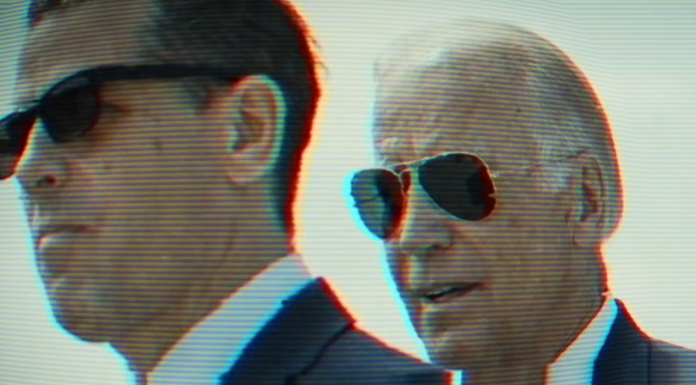Conservative investigative journalist John Solomon used shoe-leather journalism to uproot a serious ethical crisis involving Hunter Biden and the Ukrainian energy company Burisma.
Biden’s conflicts of interests during his five years on the company’s board—receiving an annual consulting fee of a million dollars—became central to House Democrats’ efforts to impeach President Donald Trump last year.
Trump had called on the Ukrainian president to reopen an investigation into the case that Joe Biden, Hunter’s father, had coerced the previous president into abandoning after threatening to withhold a billion-dollar loan if the investigating prosecutor weren’t fired.
Throughout the impeachment charade, lazy and dishonest journalists in the mainstream media insisted on repeating a Democrat talking point that there was “no evidence” of misconduct on the part of Burisma or the Bidens.
But writing for Just the News, Solomon revealed Sunday that the State Department raised concerns about Burisma having bribed local officials in a January 2015 memo—eight months after Hunter Biden began his tenure there.
“The anecdote, buried in five-year-old diplomatic files, provides a fresh illustration of the awkward, uncomfortable conflict of interest State officials perceived as they tried to fight pervasive corruption in Ukraine under Joe Biden’s leadership while the vice president’s son collected large payments as a board member for an energy firm widely viewed as corrupt,” Solomon wrote.
The $7 million bribe to local prosecutors—including then Prosecutor General Vitaly Yarema—occurred immediately after Hunter began his “consulting work in April 2014.
It was paid between May and December 2014, and Yarema subsequently took actions to undercut the two major corruption investigations against Burisma.
George Kent—then a newly dispatched diplomatic attache in Kiev, who would go on to testify against Trump—was said to have met with Yarema’s deputy and sternly rebuked him.
A week later, Yarema was out and was replaced by Viktor Shokin, whose tenure would last a year before Biden pressured Ukraine President Petro Poroshenko to can him for proceeding with the investigation.
Perhaps conflating the two top prosecutors during a 2017 discussion, Biden later boasted of his role in firing the corrupt one.
Despite Kent’s request to have Yarema’s bribery referred for investigation to the FBI, he—like the Bidens—seems to have ducked accountability for the most part.
That prompted Kent to write a blistering letter to top officials, including then-Ambassador William Taylor.
“When I met with Yarema’s right hand man … I asked him bluntly how much was the bribe and who took it,” Kent said. “Danylenko cheerfully replied: ‘That’s exactly what President Poroshenko asked us last month. ‘”
However, Solomon notes that the memo from Kent makes no mention of Hunter Biden. But weeks before the allegations surfaced, in November 2014, Yarema tried to arrange a meeting with Joe Biden.
Although the meeting never happened, Yarema might have been able to extort additional money or favors from the US administration by implicating Hunter in the corruption probe.

